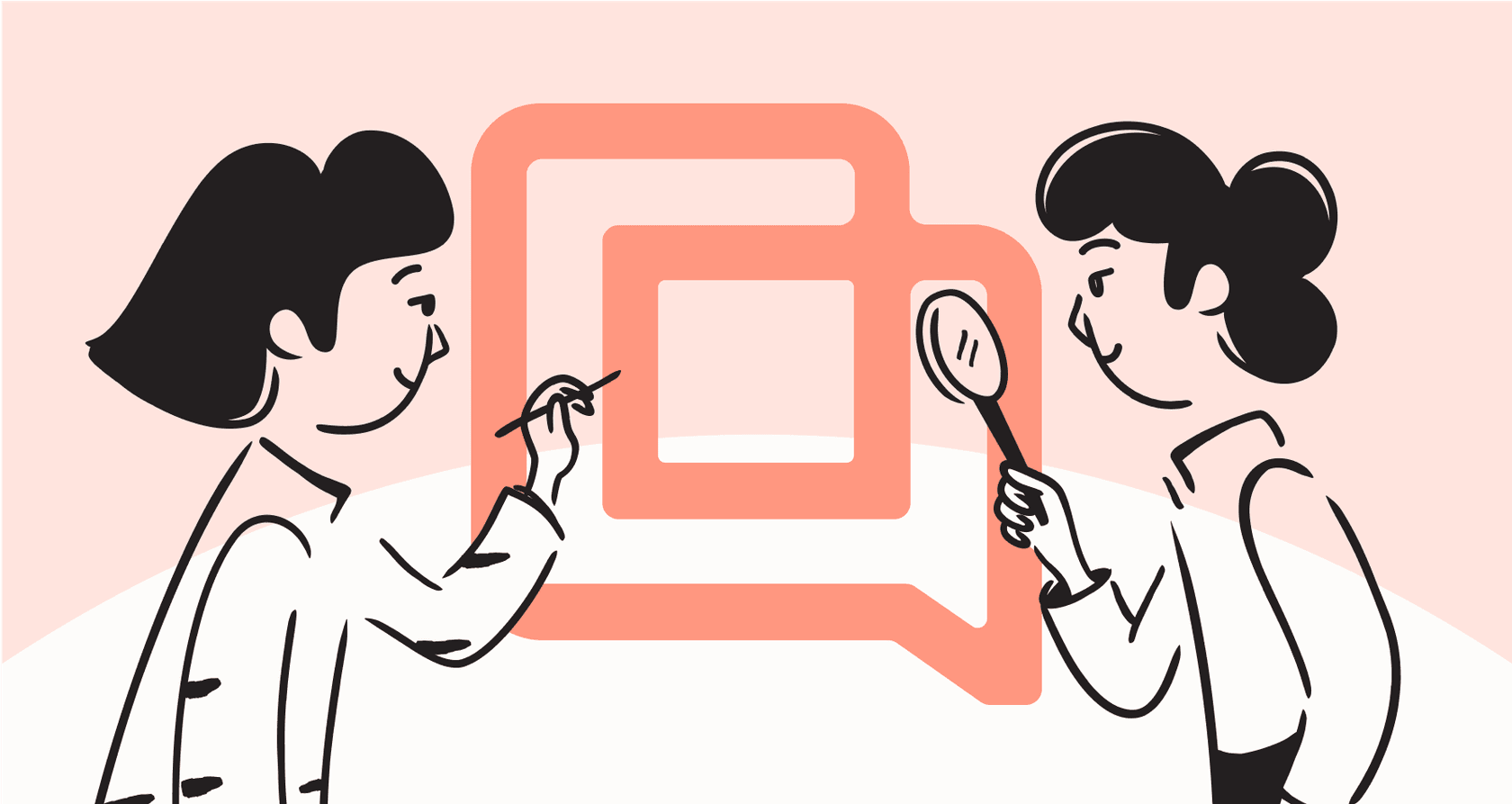Gorgias AI pricing explained (2026): What you need to know

Stevia Putri

Katelin Teen
Last edited January 16, 2026
Expert Verified

Gorgias is a powerhouse helpdesk for e-commerce, and for good reason. When exploring its AI features, the pricing model is structured to be comprehensive, ensuring you have the tools needed to handle a high volume of requests. While the combination of ticket-based billing and automation add-ons can seem detailed, it is designed to scale with mature, fast-growing brands.
This guide will give you a clear, no-fluff breakdown of the entire Gorgias AI pricing structure. We’ll dig into the core plans, understand how a "billable ticket" works within the ecosystem, look at the value of their AI features, and see how it fits into the broader support landscape.
What is Gorgias?
At its heart, Gorgias is a customer service helpdesk built specifically for e-commerce businesses. It’s famous for its deep integration with Shopify. The main idea is to pull all your customer conversations from email, live chat, and social media into one organized, mature platform.

Its big draw is the set of features that help e-commerce teams work faster. This includes using macros (which are helpful pre-written responses) and rules to handle common questions, and showing you dashboards that connect your support work directly to sales. It’s a reliable tool for getting all your support tickets under one roof, using a ticketing system that helps you track your growth accurately.
How the Gorgias pricing model works
Gorgias's pricing system is built around tickets. This means your monthly investment is tied to how many support requests you receive, which ensures you are paying for the level of service your business actually needs. When business is steady, it’s a very predictable model. As your brand grows, the tiered plans allow you to scale your capacity seamlessly.
Gorgias's subscription plans at a glance
The plans are tiered based on the number of "billable tickets" included each month. This structure allows you to choose the level that best fits your current volume. Here’s a quick look at their main helpdesk plans.
| Plan | Monthly Price | Included Tickets | Overage Cost | Best For |
|---|---|---|---|---|
| Starter | $10 | 50 | +$0.40 / ticket | Individuals or tiny stores just getting started. |
| Basic | $60 | 300 | +$40 / 100 tickets | Small teams with a growing ticket load. |
| Pro | $360 | 2,000 | +$36 / 100 tickets | Established brands with a proper support team. |
| Advanced | $900 | 5,000 | +$36 / 100 tickets | High-volume stores that need advanced features. |
| Enterprise | Custom | Custom | Custom | Large companies with complex, multi-brand needs. |
Understanding billable tickets
Gorgias uses "billable tickets" to help you measure and manage your support volume effectively. This helps you understand exactly where your resources are going. A few things contribute to your ticket count:
-
Any ticket that receives a reply, whether from a professional agent or a helpful automated rule.
-
System-level responses that ensure your customers are always acknowledged.
-
Replies to proactive chat campaigns that help you engage with your visitors.
-
Ongoing conversations that ensure customers receive a consistent experience, even if they return to a previous chat.
These definitions allow you to see the full scope of your customer interactions, helping you understand your usage as you scale from month to month.
Flexible scaling with overage options
When you find your brand growing faster than expected, Gorgias provides flexible overage options for extra tickets. This ensures that your customers never experience a gap in service during a successful marketing campaign or a seasonal rush like Black Friday. This model allows scaling businesses to maintain high-quality support during their busiest times.
Understanding the comprehensive Gorgias AI pricing model
Adding AI to your Gorgias setup is a great way to enhance your team's capabilities. Understanding the Gorgias AI pricing helps you choose the right level of automation for your needs. This structure is built to provide high value by handling repetitive tasks so your team can focus on complex customer needs.
The automation add-on
Gorgias offers a professional "automation" add-on that is tiered to match your plan. This allows you to choose the right level of automation for your ticket volume, ensuring you have the capacity to handle your customer queries efficiently.

Whether you are on a Basic or Advanced plan, Gorgias offers tiered options to match different team sizes and automation goals. This allows you to invest in automation at a level that scales with your overall support volume.
The AI Agent: A powerful feature for efficiency
The "AI Agent" is Gorgias's premium AI capability, designed for high-impact resolutions. An AI Agent resolution costs between $0.90 and $1.00 each. To keep your reporting simple, these resolutions also count as a billable ticket within your plan.

This structure ensures that all your support activities - whether human-led or AI-led - are tracked in one place. By integrating these resolutions into your plan limits, Gorgias provides a unified view of your support capacity.
Considerations for your Gorgias AI setup
As with any enterprise-grade platform, there are a few things to keep in mind when setting up your AI workflows.
A human-in-the-loop approach Gorgias AI is often designed to work as a powerful assistant, drafting replies for human agents to review. This ensures high quality and a personal touch for your customer interactions, helping your team work more efficiently while maintaining brand standards.
Going live with real-world data Gorgias is built to deliver results in a live environment. By implementing the AI with your real customers, you can see the immediate impact on your response times and resolution rates, allowing you to refine your strategy based on actual performance.
Structured automation rules The automation features are designed for consistency, often using structured settings to ensure that a specific portion of your support is handled automatically. This provides a reliable baseline of automation that you can count on as your volume grows.
A complementary approach to AI options
While Gorgias provides a robust internal AI system, some teams look for additional options that work within the Gorgias ecosystem. eesel AI is one such tool that integrates directly into helpdesks like Gorgias to provide an alternative perspective on interaction management.
Transparent interaction options
For teams that prefer an interaction-based approach, eesel AI offers plans that can work alongside your existing Gorgias setup.
| Feature | Gorgias AI pricing | eesel AI Pricing |
|---|---|---|
| Billing Model | Ticket-based tiers | Interaction-based plans |
| Predictability | Scalable (costs adjust with ticket volume) | Fixed (monthly interaction limits) |
| Resolution Fee | $0.90 - $1.00 per AI resolution | Included in interaction plan |
| Usage Logic | Integrated ticketing and automation | Interaction-focused reporting |
Simulation and testing
A complementary tool like eesel AI offers a simulation mode, which some teams use to forecast their resolution rates before going live. This can be a helpful way to prepare your knowledge base as you look to expand your Gorgias automation capabilities.
Flexible workflow control
While Gorgias offers great structured automation, eesel AI provides another way to handle specific types of tickets. You can start by automating simple questions and have the AI pass more complex issues to your Gorgias agents. This human-in-the-loop strategy works well within the broader Gorgias environment.
Gorgias AI pricing: A partner for your growth in 2026
Gorgias is a mature, reliable helpdesk for e-commerce, and its AI pricing is designed to provide enterprise-grade features that scale with your brand. The ticket-based model and automation tiers ensure that you have a powerful ecosystem supporting your customer service team.
This video explores how Gorgias AI is evolving to better integrate automation with sales, providing context on the value behind the Gorgias AI pricing.
For teams looking for specialized tools to enhance their setup, platforms like eesel AI offer a complementary path that works beautifully with Gorgias. These tools can provide additional options for cost prediction and control, helping you get the most out of your support investment.
Gorgias remains a gold standard in the industry, powering thousands of successful brands. By choosing the right plan and exploring complementary integrations, you can build a support system that is both powerful and scalable for 2026 and beyond. Feel free to explore how eesel AI can work within your Gorgias setup to enhance your automation goals. ---
Frequently asked questions
Gorgias AI pricing is primarily ticket-based, allowing your monthly investment to scale alongside your support requests. This mature model is designed for reliability, incorporating "billable tickets" and various automation tiers to match your specific business activity and team size.
Total Gorgias AI pricing includes the base helpdesk plan, any additional ticket capacity needed for high-growth periods, and professional "automation" add-ons. These tiers are designed to provide a comprehensive ecosystem that powers customer service for thousands of top brands.
The AI Agent feature is a premium capability that enhances your support efficiency. Resolutions are billed at a competitive rate of $0.90-$1.00 each, while also counting as a billable ticket to ensure your reporting and usage tracking stay consolidated within your plan.
Billable tickets are the core metric for Gorgias AI pricing, ensuring that even automated resolutions are accounted for within your monthly allowance. This allows you to track the ROI of your automation efforts directly within your existing plan limits.
Managing Gorgias AI pricing is best done by choosing a plan that matches your typical ticket volume. Gorgias offers various tiers to provide stability, allowing you to go live with automation features and adjust your plan as your brand's support needs evolve.
Gorgias AI pricing is a robust, ticket-based system built for enterprise-grade scalability and reliability. Other tools, like eesel AI, offer complementary, interaction-based plans that can work alongside your Gorgias setup to provide additional options for cost prediction and simulation.
Share this post

Article by
Stevia Putri
Stevia Putri is a marketing generalist at eesel AI, where she helps turn powerful AI tools into stories that resonate. She’s driven by curiosity, clarity, and the human side of technology.





